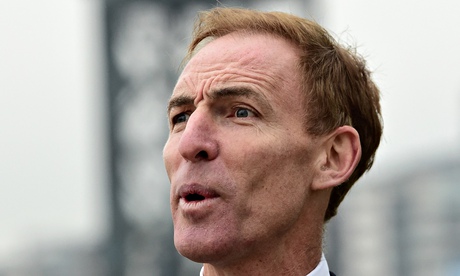 |
| Labour’s policy shift will be confirmed on Tuesday by Jim Murphy, the favourite to become the next Scottish Labour leader. Photograph: Jeff J Mitchell/Getty Images |
The Scottish parliament is expected to be offered total control over income tax after Labour reluctantly backed a cross-party deal to help halt a surge in support for independence.
Labour’s decision to drop its opposition to full devolution of income tax, worth about £10.8bn a year, comes after Alistair Darling, the last Labour chancellor, warned that doing so would end in “floods of tears” and increase the UK’s borrowing costs.
Darling told the FT he feared the measure, which is expected to be the centrepiece to sweeping new powers for the Scottish parliament being unveiled by Lord Smith on Thursday, would damage the UK’s history of pooling resources and sharing risks.
Labour had insisted on giving Holyrood limited powers over income tax until recent polls showed a sharp surge in support for the Scottish National party, hitting record levels of 52% and plummeting backing for Labour.
The significant switch will be confirmed on Tuesday by Jim Murphy, the favourite to become the next Scottish Labour leader, two days before Lord Smith of Kelvin publishes his cross-party deal on extra powers for Holyrood.
Describing the move as one of the most significant changes in Labour policy since it dropped its Clause 4 policy backing nationalisation, Murphy will argue that giving Holyrood full tax powers will make MSPs far more accountable for their spending decisions.
“It will create the clear connection between the raising of taxes and the spending of revenues, which is missing at present,” Murphy will say in a leadership campaign speech in Glasgow, echoing the views of both the Tories and the Lib Dems.
Murphy will also signal that Labour will use the new powers to campaign for Scotland to reinstate the 50p top rate in income tax in a bid to outmanoeuvre the SNP, which has repeatedly refused to endorse the policy.
Having the power to raise tax rates would “result in there being no hiding place for those who want to talk about radical politics but then fail to deliver them,” he will say.
Smith is expected to confirm on Thursday that the main UK parties – backed by the SNP – have agreed to give the devolved parliament a swath of new welfare, tax and legal powers, as pledged by the no campaign before it won the independence referendum on 18 September.
The most far-reaching proposal to allow Holyrood to completely control the rates and bands for income tax had been opposed by some of Labour’s heavy hitters, including the shadow chancellor, Ed Balls, and former prime minister Gordon Brown, who last month warned that devolving income tax was a “Trojan horse for fiscal autonomy” that could lead to the unravelling of the UK.
Backed by some of Labour’s most senior advisers, Balls and Brown fear that breaking up the UK’s entirely integrated income tax system will accelerate moves to restrict the voting rights of Scottish MPs in the Commons.
It could allow Scotland to cut tax rates below the rest of the UK, increase the chances of reforms to the Barnett formula system of funding Scotland, and make it far more difficult for a Labour chancellor to push through a controversial budget.
Darling has also warned that dividing up the UK-wide tax system also meant that people in Scotland would not pay directly for “quintessential” UK services such as defence, protecting bank deposits and the UK-wide welfare system.
“For the first time in 300 years, a UK government would no longer have control over its power to raise income taxes,” he wrote.
“It could be left in a position where it determines the rate of income tax only to find it impossible to implement in Scotland, Wales and Northern Ireland.”










0 comments:
Post a Comment